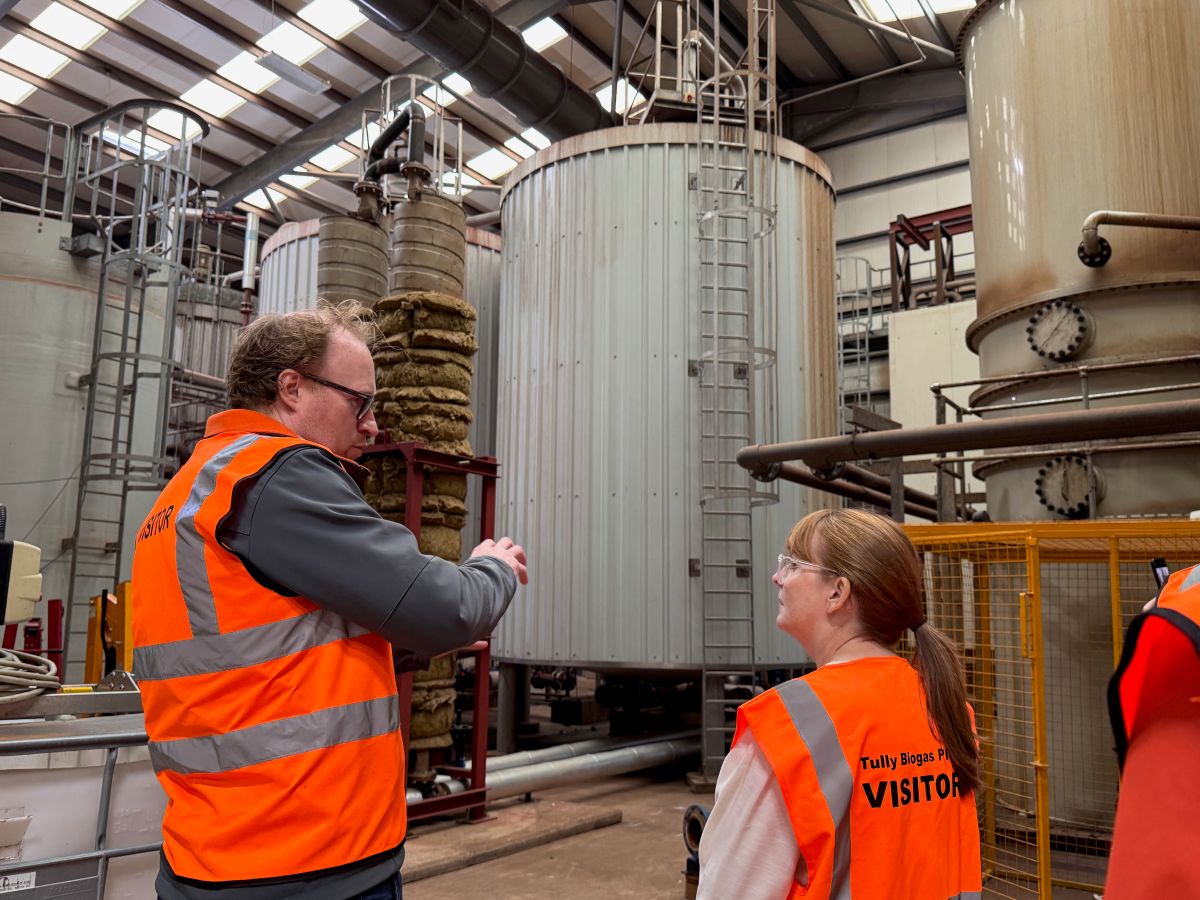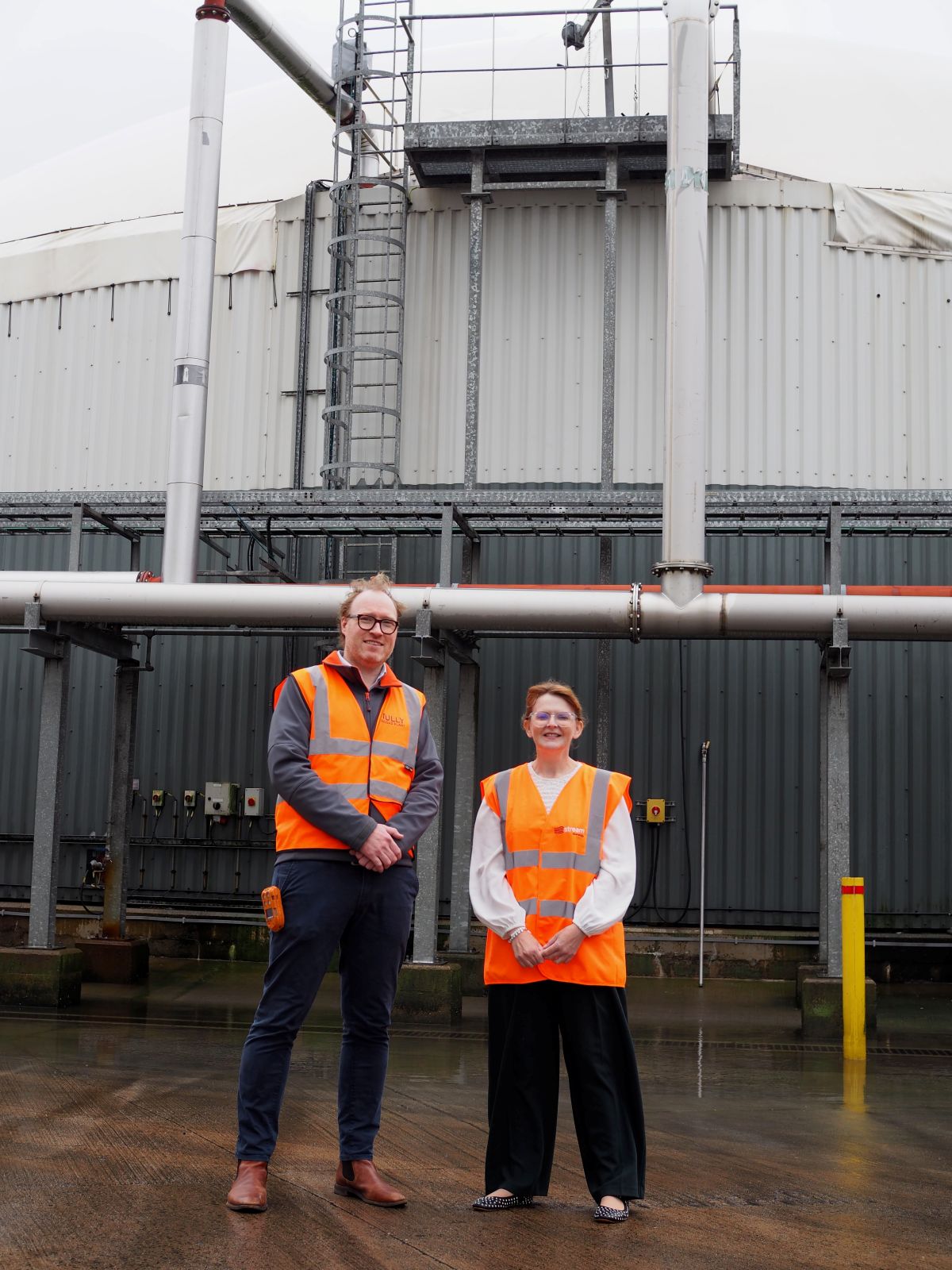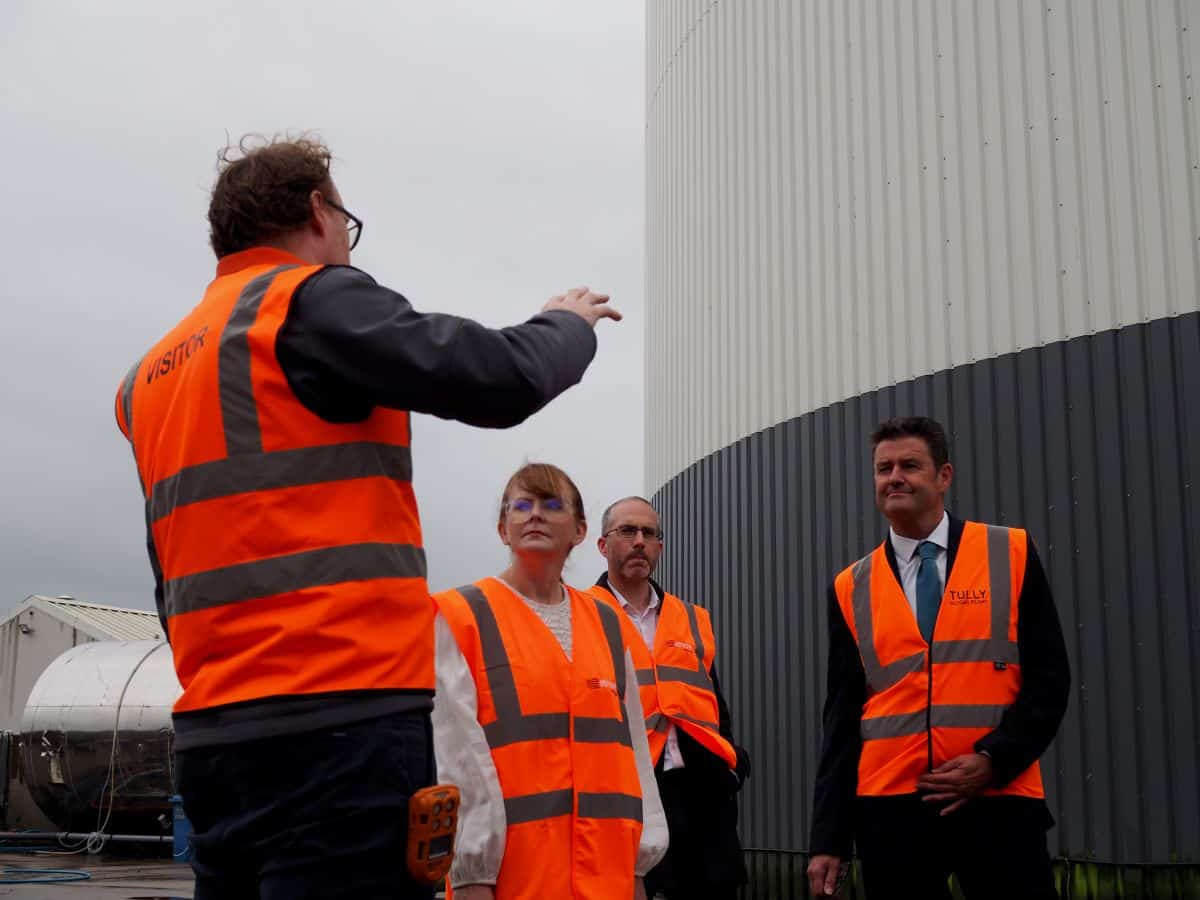ADBA to attend Bio360 Europe as Media Partner ADBA will be exhibiting at this week’s…
Northern Ireland Economy Minister tours Tully Biogas Plant on visit organised by ADBA
Press Release
Minister Archibald visits Tully Biogas Plant, Ballymena
- Dr Caoimhe Archibald, Economy Minister in the Northern Ireland Executive, has visited the Tully Biogas Plant in Ballymena, operated by Stream BioEnergy, to see how the facility is contributing to regional development, renewable energy generation and waste management.
- The Tully Biogas Plant processes 40,000 tonnes of chicken litter each year through anaerobic digestion (AD) to generate enough renewable electricity to power 6,000 homes – while reducing pollution.
On 10 September, the Economy Minister in the Northern Ireland Executive Dr Caoimhe Archibald visited the Tully Biogas Plant in Ballymena, operated by Stream BioEnergy.

Following the visit, Minister Archibald said:
“I welcome the opportunity to engage with ADBA on the economic and environmental potential of the anaerobic digestion sector, and how it aligns with my vision for a fairer, greener, and more innovative economy.
“The technologies being deployed here show how environmental sustainability and economic ambition can work hand in hand to deliver meaningful impact. Anaerobic digestion offers significant potential to address our energy and climate challenges, while supporting regional balance and long-term economic development.”

Kevin Fitzduff, Managing Director at Stream BioEnergy commented:
“We are delighted to showcase the award-winning Tully Biogas Plant to Minister Archibald. This facility demonstrates the exciting potential of the emerging circular economy in Northern Ireland – transforming organic waste into clean energy and valuable by-products. It is a great opportunity to highlight how our projects deliver real environmental, economic and community benefits here in the Ballymena area and beyond.”
Dr Archibald was joined on this visit by representatives from the Anaerobic Digestion and Bioresources Association (ADBA), the UK trade body currently campaigning for government to make changes to key policies to help grow the sector and help it play its part in the UK’s Net Zero Transition.

ADBA Chair Chris Huhne said:
“Biogas is a cornerstone of renewable energy, because it is available all year round even when the sun is not shining and the wind has died down. With the right policies, AD can help the government and the country as a whole reach its net zero and levelling up goals. Not only does AD significantly contribute towards reducing greenhouse gases emissions, it also helps cut household energy bills and offers green jobs across the country.
Biogas really is the low regret solution the government must get behind to enable us to turn our organic waste into a valuable resource to power our homes, businesses and the wider economy.”
ADBA has recently published a report indicating that the use of biogas could cut the cost of meeting the UK’s net zero targets in 2050 by nearly £300 billion against official projections. These findings are the result of new analysis by BMA, drawing on the computer model used by Whitehall.
-ENDS-
For further information, contact:
At Stream BioEnergy:
Maria Leston Caamano,
E: marialeston@streambioenergy.ie
At ADBA:
Alasdair Rogers, Communications Manager, ADBA
E: alasdair.rogers @adbioresources.org; tel: +44 (0)20 8434 5407
Notes to editors:
- About Stream BioEnergy,
Stream BioEnergy develops, owns and operates advanced anaerobic digestion facilities. Pioneering sustainable waste-to-energy solutions, the company transforms organic residues into renewable energy and biofertilisers. Its award-winning projects, such as the Tully Biogas Plant, deliver environmental, economic and community benefits while reducing carbon emissions.
- About Tully Biogas Plant, Ballymena, Northern Ireland
The award-winning Tully Biogas Plant, operated by Stream BioEnergy, is among the first in the world to run solely on chicken litter at scale. The plant processes 40,000 tonnes of chicken litter annually to generate 3MW of renewable electricity – enough to power 6,000 homes. It also addresses nutrient imbalance in Northern Ireland, reducing pollution risks to soils, watercourses and the atmosphere, and has received multiple industry awards.
- About ADBA
The Anaerobic Digestion and Bioresources Association(ADBA) is the trade association for the UK anaerobic digestion (AD) and biogas industry. ADBA’s vision is to see the full potential of the UK AD industry realised so it can help the UK achieve its emissions targets and other policy goals, creating a truly circular economy. adbioresources.org - About the anaerobic digestion industry
- There are currently over 750 AD plants operational in the UK
- The entire industry digests approximately 36 million tonnes of organic wastes each year – organic material that would otherwise emit greenhouse gases including highly potent methane, if left untreated in landfill.
- An estimated 21TWh of biogas is produced each year by the AD industry – this green gas is either used to generate electricity and heat via a combined heat and power (CHP) unit or upgraded to biomethane and injected directly into the national gas grid.
- The industry currently delivers savings of 1% off the UK’s greenhouse gas emissions every year.
- An estimated 4,800 people are currently employed in the AD and biogas industry in the UK.
- Overall, the industry grew by 5% last year as the closure of older, smaller plants was outweighed by big-scale units feeding into the gas grid.
- Fully deployed, by 2050, the UK AD and biogas industry expected to:
- Produce over 100TWh of biomethane
- Provide between 20% and 50% of UK gas demand
- create 30,000 direct and 30,000 indirect jobs.
- save the UK 27 million tonnes of CO2 equivalent = taking 1/3rd of all cars off the road
- heat 6.8 million UK homes with the 8 billion m3 of biomethane generated
- How AD works
Anaerobic digestion (AD) is the natural breakdown of organic matter when deprived of oxygen in a container called digester. The process produces biogas and a residue called digestate – a stable, nutrient-rich substance used as a biofertiliser which restores soil health.
